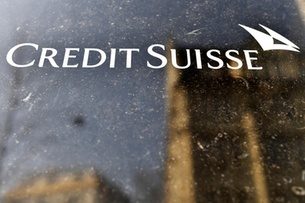Not up to scratch, says FINMA of CS’s efforts to run a clean operation (© KEYSTONE / WALTER BIERI) Swiss bank Credit Suisse has failed to meet its obligations to prevent money laundering, says Switzerland’s financial supervisory authority. According to FINMA, the Financial Market Supervisory Authorityexternal link, the misconduct is related to the alleged corruption cases around FIFA, world football’s governing body, and the oil companies Petrobas and PDVSA. Another case involves a significant business relationship with a politically exposed person. In two enforcement proceedings against the major bank, FINMA found deficiencies in the due diligence measures required for banks to comply with anti-money laundering
Topics:
Swissinfo considers the following as important: 3) Swiss Markets and News, Business, Credit Suisse, Featured, newsletter
This could be interesting, too:
Dirk Niepelt writes “Report by the Parliamentary Investigation Committee on the Conduct of the Authorities in the Context of the Emergency Takeover of Credit Suisse”
Nachrichten Ticker - www.finanzen.ch writes Krypto-Ausblick 2025: Stehen Bitcoin, Ethereum & Co. vor einem Boom oder Einbruch?
Connor O'Keeffe writes The Establishment’s “Principles” Are Fake
Per Bylund writes Bitcoiners’ Guide to Austrian Economics
Swiss bank Credit Suisse has failed to meet its obligations to prevent money laundering, says Switzerland’s financial supervisory authority.
According to FINMA, the Financial Market Supervisory Authorityexternal link, the misconduct is related to the alleged corruption cases around FIFA, world football’s governing body, and the oil companies Petrobas and PDVSA. Another case involves a significant business relationship with a politically exposed person.
In two enforcement proceedings against the major bank, FINMA found deficiencies in the due diligence measures required for banks to comply with anti-money laundering regulations.
As FINMA announced on Monday, the misconduct involving FIFA and the oil companies Petrobras (Brazilian) and PDVSA (Venezuelan), went on for years, mainly before 2014.
Among other things, this involved the identification of the contracting party, the determination of the beneficial owner, the categorization as a business relationship with increased risk, as well as the necessary clarification of increased risk and its plausibility.
The second case concerns a significant business relationship with a politically exposed person (PEP), says FINMA.
“The bank was too slow to identify and treat the PEP client as posing increased risks. Moreover, the due diligence and corresponding documentation relating to the business relationship were incomplete. The bank failed to meet its heightened due diligence obligations regarding investigation, plausibility checks and documentation regarding the client and certain related high-risk transactions,” wrote FINMA in a statementexternal link.
Next steps
FINMA has taken measures to improve the anti-money laundering policy and to ensure that the bank implements steps more quickly. An independent representative will review the implementation and impact of the measures.
In connection with the alleged cases of corruption, since 2015 FINMA has been investigating several banks to see whether their clients were involved in these cases and whether the banks complied with the supervisory regulations.
In a statement regarding the findings of FINMAexternal link, Credit Suisse said that it had “commissioned independent reviews of the conduct in question, self-reported the shortcomings, and has cooperated with FINMA throughout the process, taking proactive remediation measures”.
Credit Suisse added that it was “grateful to FINMA for its acknowledgement of the improvements that have been made to our compliance and control framework over the last few years” and pointed out that as a result of the review, FINMA had not “imposed any fine on Credit Suisse, not ordered any disgorgement of profits nor any limitation of business activities.”
SDA-Keystone/smTags: Business,Credit Suisse,Featured,newsletter

